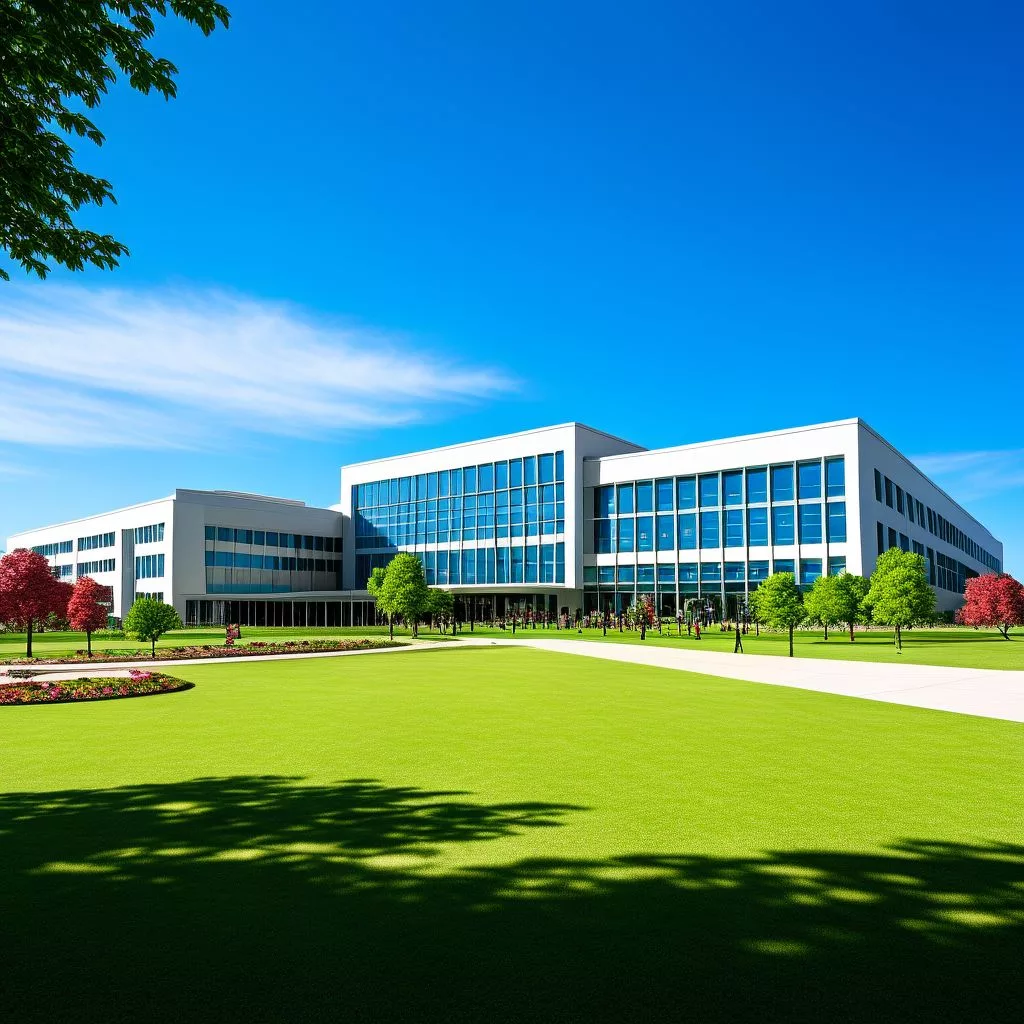In Cape Town, traffic jams are a big problem, especially during busy hours. With the help of artificial intelligence (AI), the city could make traffic flow smoother and reduce waiting times at red lights. AI has already worked wonders in other cities, cutting travel times and pollution. Although Cape Town is careful about which technology to choose, embracing AI could lead to a cleaner, smarter city where getting around is easier and better for the environment.
How Can AI Improve Traffic Management in Cape Town?
AI can significantly enhance traffic management in Cape Town by optimizing traffic signal timings and reducing congestion. Key benefits include:
- Real-time data analysis for better traffic flow
- Reduction in peak-hour travel times
- Lower greenhouse gas emissions
- Improved fuel efficiency
Adopting AI could transform urban mobility and sustainability in the city.
The Current State of Traffic Management in Cape Town
Cape Town, renowned for its picturesque coastal drives, also grapples with severe traffic congestion, particularly during peak hours. The city’s traffic management system, which oversees 1,750 intersections, currently relies on a combination of fixed-timing robots and sensor-based mechanisms. Some traffic lights operate on pre-determined schedules, while others adjust their timing in response to vehicle pressure pads.
Despite these efforts, congestion remains a critical issue. Recent advancements in artificial intelligence (AI) offer promising solutions that have yet to be embraced by Cape Town. Major technology firms like Google and Alibaba are pioneering AI-driven traffic control systems that utilize enormous amounts of real-time data to optimize traffic signal timings. For example, a Nature study published in February highlighted the efficacy of such systems in China’s busiest cities, showing an 11% reduction in peak-hour travel times and an 8% decrease during off-peak hours. The project costs, estimated at $1.5 billion annually, were significantly outweighed by $32 billion in benefits such as time savings, reduced carbon emissions, and better fuel efficiency.
Global Success Stories with AI Traffic Solutions
Google’s Project Green Light exemplifies the transformative potential of AI in traffic management. Currently operational at 70 intersections across cities on four continents, the system uses AI and data from Google Maps to monitor traffic flows. Results have shown a 30% reduction in stops and a 10% drop in greenhouse gas emissions. Google initiated this project five years ago, recognizing that stop-and-go traffic at intersections is a significant contributor to urban pollution. According to a blog post by Google, “Road transportation is responsible for substantial global and urban greenhouse gas emissions. At intersections, pollution levels can be up to 29 times higher than on open roads, with about half of these emissions stemming from vehicles accelerating after stopping.”
Alibaba’s City Brain system in major Chinese cities offers another compelling case for AI in traffic management. This system uses comprehensive data analysis, drawing from traffic cameras and even social media feeds, to manage urban traffic flows more efficiently. A technologist working in urban planning, after visiting Hangzhou, the heart of Alibaba’s operations, noted the stark difference in traffic fluidity compared to cities using traditional traffic management systems. “Experiencing it firsthand, I realized how AI could redefine urban living,” he remarked.
Cape Town’s Hesitation and Potential Path Forward
Despite the evident benefits of AI-driven traffic management systems, Cape Town remains cautious. Councillor Rob Quintas, the City’s Mayoral Committee Member for Urban Mobility, emphasized that the city has yet to find a suitable AI system that offers substantial benefits. “The city is aware of developments in artificial intelligence and the utilization of big data for improved traffic flow but has yet to find a suitable system that can deliver meaningful results,” he said. Nevertheless, Quintas assured that if an effective AI-powered solution is identified, the city will conduct the necessary market research to procure a system that fits its environment.
In the meantime, Cape Town continues to optimize traffic signals using existing technologies. Approximately 25% of the city’s traffic lights utilize the Split, Cycle, and Offset Optimization Technique (SCOOT), which dynamically adjusts green-light durations based on real-time traffic data from road sensors. This system is particularly effective at intersections with fluctuating traffic volumes throughout the day.
Balancing Progress with Practicality
The reluctance to adopt AI mirrors a broader trend among cities grappling with the balance between technological advancements and practical feasibility. Municipalities must consider the robustness and adaptability of new technologies before implementation, especially in regions with unique challenges like Cape Town. This cautious approach prioritizes long-term viability over quick fixes, ensuring that any adopted system can withstand the test of time and operational demands.
Yet, the proven benefits of AI in other cities present a compelling case for its adoption. AI-driven systems have successfully reduced congestion, lowered emissions, and enhanced urban mobility in bustling metropolises. From the gridlocked streets of New York to the busy avenues of Mumbai, cities worldwide are exploring AI’s potential to revolutionize traffic management. Cape Town could draw valuable lessons from these global experiences, tailoring solutions to fit its specific needs and constraints.
The Broader Implications of AI in Urban Planning
The conversation around AI in traffic management aligns with wider societal shifts towards sustainability. Reduced emissions, lower fuel consumption, and improved air quality are not just technological achievements but essential steps towards a healthier planet. As global awareness of environmental issues grows, cities are increasingly seen as battlegrounds for sustainable living.
Incorporating AI into Cape Town’s traffic management might initially seem daunting, but the long-term benefits demonstrated in pioneering cities present a compelling case. The intertwining of technology and urban life, reminiscent of the transformative power of the Industrial Revolution, heralds a new era. Just as steam engines once reshaped cities, AI promises to redefine urban landscapes, making them smarter, greener, and more livable.
While Cape Town deliberates on AI’s potential, its story serves as a microcosm of the global urban experience. The city’s journey, marked by cautious optimism and a quest for practical solutions, mirrors the broader narrative of cities worldwide. As artificial intelligence continues to evolve, its role in shaping the future of urban living becomes ever more pronounced, opening a new chapter in the age-old tale of human ingenuity and progress.
FAQ: Embracing AI for Traffic Management in Cape Town
How can AI improve traffic management in Cape Town?
AI can enhance traffic management in Cape Town by optimizing traffic signal timings, resulting in smoother traffic flow and reduced congestion. Key benefits include real-time data analysis, lower peak-hour travel times, decreased greenhouse gas emissions, and improved fuel efficiency.
What is the current state of traffic management in Cape Town?
Cape Town manages traffic through a combination of fixed-timing robots and sensor-based mechanisms across 1,750 intersections. Despite these efforts, traffic congestion remains a significant issue, particularly during peak hours, as traditional systems are less effective compared to emerging AI-driven solutions seen in other cities.
What are some success stories of AI in traffic management from around the world?
Notable AI implementations include Google’s Project Green Light, which has been shown to reduce stops by 30% and greenhouse gas emissions by 10% at intersections. Alibaba’s City Brain system in China also demonstrates how AI can analyze massive amounts of data to improve urban traffic flow, resulting in significantly better traffic fluidity.
Why is Cape Town hesitant to adopt AI for traffic management?
Cape Town is cautious about adopting AI solutions primarily because it has not yet identified a suitable system that offers substantial benefits. City officials, including Councillor Rob Quintas, emphasize the importance of ensuring that any adopted technology is both effective and adaptable to Cape Town’s unique traffic challenges.
What technologies are currently in use for traffic management in Cape Town?
Currently, approximately 25% of Cape Town’s traffic lights utilize the Split, Cycle, and Offset Optimization Technique (SCOOT), which adjusts green-light durations based on real-time traffic data. This system helps in managing fluctuating traffic volumes throughout the day but is combined with traditional fixed-timing methods.
What are the broader implications of adopting AI in urban planning?
The integration of AI in traffic management is part of a larger shift towards sustainability in urban planning. Adopting AI can lead to reduced emissions, lower fuel consumption, and improved air quality, which are essential for creating healthier urban environments. The experience of cities around the world suggests that AI can play a significant role in making urban living smarter and more sustainable.











